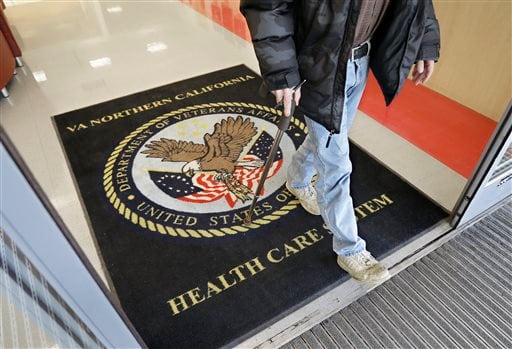Attorneys for a coalition of municipalities and advocacy groups that had sued the Trump administration over accuracy concerns about the 2020 census say they’re hopeful about reaching an agreement with the new Biden administration as both sides take a more cooperative approach.
Attorneys for the coalition had been seeking sanctions against Department of Justice attorneys under the Trump administration for failing to turn over documents and data showing quality measurements about the completeness and accuracy of the 2020 census data. But the coalition and Department of Justice last weekend jointly asked a federal judge in San Jose, California, to suspend for seven days an order compelling the department to turn over requested data and any proceedings seeking sanctions against the Department of Justice attorneys.
In weekend court papers, coalition attorneys said they were discussing with the Department of Justice attorneys how to move forward, given that one of President Joe Biden’s first acts upon taking office two weeks ago was rescinding two census-related directives from former President Donald Trump. The Trump directives ordered the Census Bureau to figure out who is in the U.S. illegally using administrative records and to exclude them from the apportionment of congressional seats.
Since the change in administrations, the Census Bureau also has said it will take extra time crunching the numbers used for determining how many congressional seats each state gets, with those state population count numbers ready by the end of April, the court papers said.
“While the case remains ongoing and many questions remain about census operations under the prior administration, our recent discussions with defendants have been productive and cooperative, and we expect to obtain additional information shortly regarding the pending legal issues,” Sadik Huseny, one of the plaintiff attorneys said Monday evening in a statement to The Associated Press. “In light of the new administration’s recent actions and approach, we are hopeful that we might be able to reach an agreement that ensures a full and fair count and accurate 2020 Census.”
The Department of Justice declined to comment.
The census data are used to determine how many congressional seats and Electoral College votes each state gets and the distribution of $1.5 trillion in federal spending each year. The lawsuit currently was scheduled for trial in March.
The coalition of counties, cities, tribal governments and advocacy groups sued the Trump administration last year in order to stop the census from ending early out of concern that a shortened head count would cause minority communities to be undercounted. Attorneys for the coalition had argued that the head count, as well as the data processing schedule, was shortened in an effort to make sure Trump was still in office so that his apportionment order to exclude people in the country illegally could be enforced.
The coalition’s legal fight forced the once-a-decade head count to continue two weeks past what the Trump administration had wanted. The Trump administration tried to get the numbers-crunching for the 2020 census data finished by a Dec. 31 deadline, but the Census Bureau encountered not-unexpected data irregularities that needed to be fixed, and the date for having those numbers ready kept getting pushed back.
The coalition was seeking data and documents to help assess the accuracy of the 2020 census, saying a shortened timeline for processing the data would compromise its quality.
Last month, just days before Biden was inaugurated, attorneys for the coalition and Department of Justice attorneys reached a deal to suspend the court case for 21 days so the Biden’s administration could take power and decide how to proceed.
However, that deal did not include the motion by the coalition demanding information about how the Census Bureau collected 2020 census data, and a panel of three magistrate judges granted the coalition’s motion to compel last week. Last weekend’s agreement between the coalition and the Department of Justice puts that motion on hold.
The Census Bureau’s acting director provided more details Tuesday on the data irregularities and said his statistical agency was teaming up with experts from the American Statistical Association and other technical advisors to come up with quality-control checks.
The data anomalies include “standard” problems that have come up in past decades, such as mismatches, duplicate responses and errors in processing code, Ron Jarmin said in a blog post.
But there also were irregularities unique to 2020, including people’s reluctance to answer their doors to census takers during the pandemic and census takers’ difficulty reaching people affected by natural disasters, such as wildfires and hurricanes. Reaching residents of group quarters, such as college dorms, also proved challenging since most students left campus last March because of the pandemic, Jarmin said.
“Even though these issues affect a relatively small part of the total count, they can have a big impact on the count for the communities in which they’re located,” Jarmin said.





